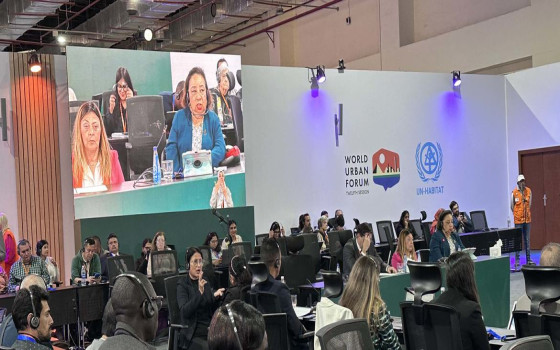
"Safe and inclusive cities for all", the Special Rapporteur on the Rights of Persons with Disabilities stresses the importance of building urban spaces that do not exclude anyone

- Europe and Arabs
- Thursday , 28 November 2024 11:23 AM GMT
Cairo - New York: Europe and the Arabs
The Special Rapporteur on the Rights of Persons with Disabilities, Dr. Heba Hegrass, said that cities must be made safe and inclusive quickly, and that people with disabilities must feel that they enjoy full humanity in their lives and freedom of movement and live independently without waiting for help from anyone. According to the United Nations Daily News Bulletin
In a special interview with United Nations News during the World Urban Forum held in early November 2024, Hegrass warned that if a person with a disability has to "live thinking about how to avoid places where there is an environmental problem, such as not being able to climb stairs or not being able to access any information, this is the danger."
She stressed that a person with a disability "must feel that he is on an equal footing with others within his community."
The following is the text of the interview with Dr. Heba Hegrass, Special Rapporteur on the Rights of Persons with Disabilities, during the activities of the World Urban Forum in its twelfth edition.
In response to a question about a discussion circle on the issues of people with disabilities and the issue of urban development and creating a safe environment for people with disabilities. What are the most important points you raised during the discussions?
Heba Hegras said: The truth is that the roundtable, with everything that was discussed, was very distinctive and was planned in an excellent way, and I thank the United Nations Human Settlements Program for organizing this event in this diverse, distinguished, and professional way.
Regarding my intervention, I talked about cities and how these cities should be accessible and attractive to people with disabilities. We talked not only about empowerment, accessibility, or integration in buildings, but also integration in transportation and technology, and that the entire city should be for people with disabilities as equal citizens, and that they have obtained their rights like any person without disabilities, and that they should feel safe and secure in all the steps they take within the city.
This is the idea that has already begun and will continue and there is no turning back on it, and therefore the gatherings of countries in such conferences are important gatherings to transfer different experiences so that we can all move at the same speed and reach the point that we benefit all societies in different countries.
As you have seen, successful models were discussed, including models in different Arab countries. All of this indicates that we must accelerate the process of making these cities safe, and we must also accelerate the process of making these cities inclusive, and therefore it is important to exchange and transfer experiences and see the compatibility and suitability that each country needs and work to transfer these experiences.
People with disabilities must feel in their lives inside and outside the home that they can reach what they ask for.
As for a person with a disability living thinking about how to avoid those places where there is an environmental problem, such as not being able to climb this ladder or not being able to access any information, this is the danger.
A person with a disability must feel that he is on an equal footing with others within his community, and feel that he is a human being who enjoys his full humanity in his life and in his freedom of movement and lives independently without waiting for help from anyone.
In another question to her as rapporteur on the rights of persons with disabilities, what are the first steps that you suggest so that we can start building these cities; the cities of the future that we have heard about, and also building those safe urban spaces for everyone?
Heba Hegras: This actually starts from the localities. The slogan of the conference is a strong slogan and a basic pillar for us to start with the right steps. We must start from every country and in every country with the necessary steps for this place.
Therefore, if we talk about how a person with a disability can live in his country and in his community, we will reach the point that we must listen to him, know his problems and know how he wants to solve them.
And listening to the person with a disability is very important, because he is the one who knows best how to avoid the problem and how to solve it, and this is first.
The other thing is that awareness must be raised and everyone must agree on one concept, which is that today we have moved to another place and we must all move towards full accessibility and inclusive societies. Whoever does not do this will fall behind as an entire country, not just as a category or a group of them. Then insist that all city designs be for everyone and do not exclude anyone. And in no country should the design not recognize all categories of needs or all differences between people.
And regarding a question about the Cairo Declaration at the end of the forum. Can we consider this declaration from a human rights perspective as an important document as a first step or a step among steps to build safer cities and urban spaces for people with disabilities and for everyone? Heba Hegras: Without a doubt, because this declaration includes everyone and includes different categories and different needs. And as I said, security, safety, urban spaces, and all of that is added to how to deal with crises.



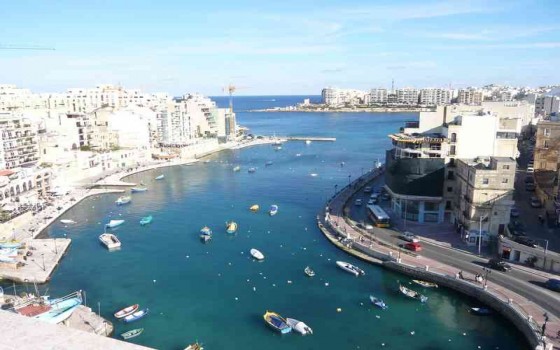



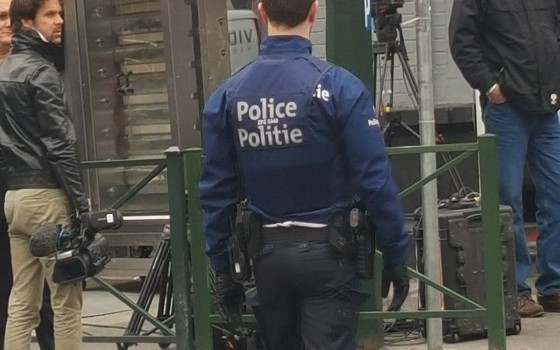
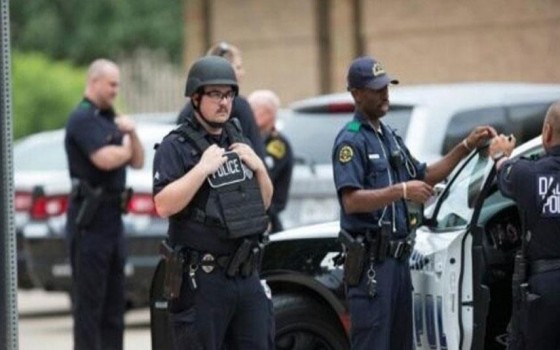
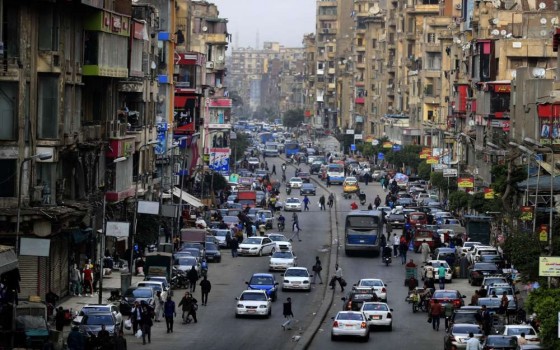
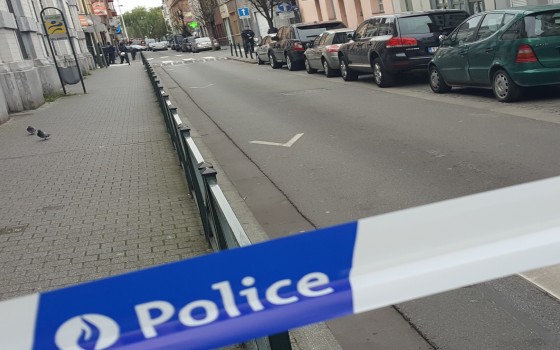

No Comments Found